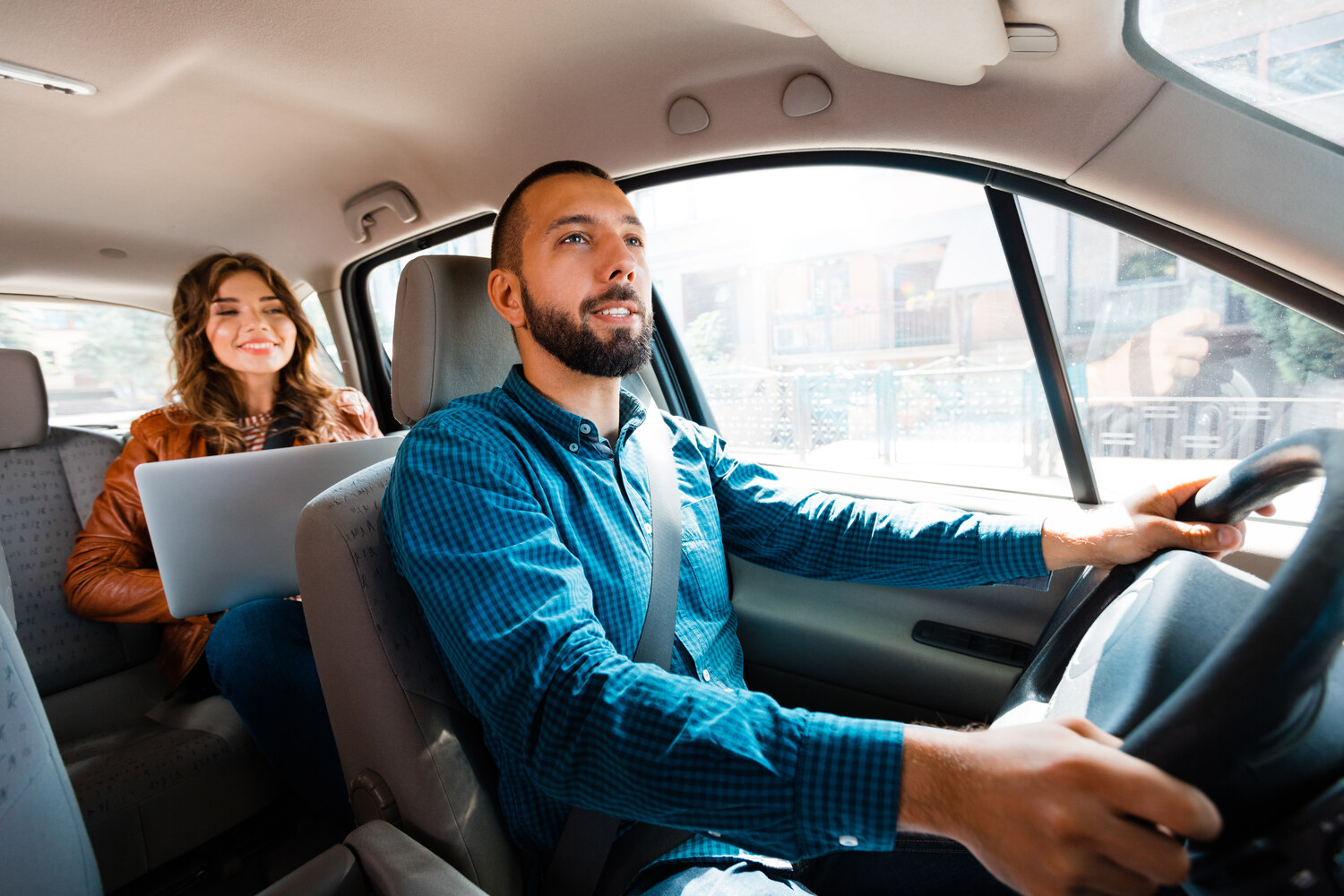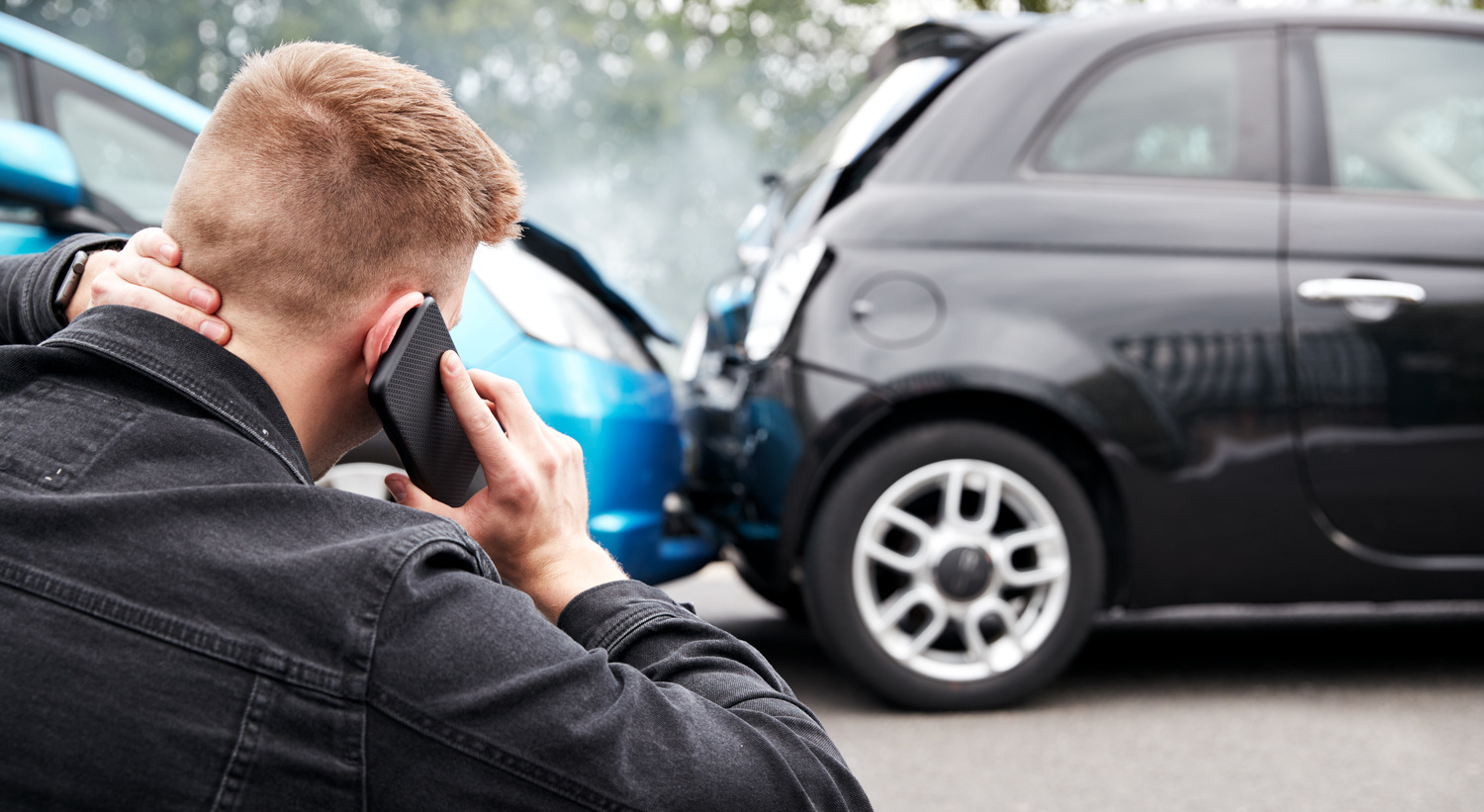RECENT POSTS
Categories
Uber Passenger Accident Settlement Amounts for 2026
Getting into a car accident in your own car is stressful enough. When it happens while you’re a passenger of an Uber or Lyft rideshare, the situation can feel extra overwhelming. As you pursue a settlement after a rideshare accident, you can generally anticipate a settlement under $15,000 for minor injuries or over $50,000 for major injuries. However, each case is unique depending on your specific circumstances, and no settlement amount is guaranteed.
Ultimately, Uber passenger accident settlements vary greatly depending on the circumstances, and large settlements are only given to passengers with serious injuries. Learn more about how to navigate the legal aftermath of an Uber accident as you read on below.
Average Uber & Lyft Passenger Accident Settlement Amounts
Just like with any car accident, the settlement amount for Uber or Lyft passenger accidents can range significantly depending on the specific details. Small accidents resulting in minor injuries will have a significantly lower settlement amount, while major accidents resulting in significant injuries or death will have a much higher settlement.
According to car accident settlement data from Forbes, average Uber passenger accident settlement amounts are as follows:
- Average Settlement (injured): $29,700
- Minimum Settlement (no or minor injuries): $1,000 - $5,000
- Maximum Settlement (severely injured): $100,000 or more
Uber and other insurance companies have a reputation for offering low settlements right out of the gate to release them from further liability. These offers can range quite a bit, but it is common to see amounts ranging from $2,000 to $5,000 in total. While this might be tempting to accept, a study conducted by Martindale-Nolo found settlement offers were nearly twice as high when respondents worked with an experienced car accident attorney.

What Impacts an Uber or Lyft Accident Settlement Amount?
When it comes to Uber or Lyft accident claims, several factors can impact the final settlement amount. Rideshare accident cases are influenced by a combination of physical, financial, and legal considerations, including:
Severity of Injuries Incurred
The severity of injuries sustained during the accident is often the most significant factor in settlement amounts. Injuries can range from minor bruises or whiplash to catastrophic injuries such as:
- Traumatic brain injuries (TBI)
- Spinal cord damage
- Permanent disability
- Broken bones
- Internal injuries
Serious injuries not only affect the victim's health but also lead to higher medical bills, longer recovery times, and increased pain and suffering. In cases of severe injury, compensation typically includes both economic losses for medical bills and lost wages and non-economic damages such as pain and suffering, emotional distress, and loss of enjoyment of life.
Who Was Liable For the Accident?
Liability in Uber or Lyft accidents can be complicated due to the involvement of multiple parties, including the rideshare driver, other drivers, pedestrians, or even the rideshare company itself. In many cases, fault can be disputed, which can delay settlement negotiations or reduce the total amount awarded.
If the rideshare driver was at fault, the insurance policies of the driver, the company, or both will come into play. However, if the accident was caused by another driver or a third party, liability will be determined based on the circumstances of the crash.
If the other driver is found to be completely at fault, accident claims are limited to $250,000 through Uber. However, if the Uber driver was at fault for the accident while en route or during a trip, then Uber has a $1 million commercial auto insurance policy limit.
Clear liability typically results in a quicker and larger settlement.
Medical Expenses
Medical costs following an Uber or Lyft accident can quickly escalate, particularly when the injuries are serious. The more extensive the medical treatment required (for things such as surgery, rehabilitation, physical therapy, and long-term care), the higher the potential settlement.
Medical expenses also include:
- Prescription costs
- Medical devices such as wheelchairs or prosthetics
- Ongoing medical visits
- Home health care or nursing services
- Counseling or therapy
It’s important for accident victims to keep detailed records of all medical treatments, prescriptions, and receipts, as they are crucial when calculating damages.
Loss of Income or Earning Capacity
Car accidents often result in a loss of income, especially when the victim is unable to return to work for a period of time. If the injuries are severe enough to result in permanent disability or a reduced ability to work, compensation can include damages for lost wages and diminished earning capacity.
This is particularly significant for individuals with specialized careers, business owners, or independent contractors, where the loss of income can be substantial. Economic experts may be called upon to assess future loss of earnings based on the victim's profession and earning history.
Pain & Suffering
Pain and suffering covers the non-economic impact of an accident. It compensates you for PTSD, emotional distress, anxiety, and the loss of ability to enjoy everyday activities. The more serious or long-lasting your injuries are, the more impact this can have on your settlement amount.
How Does a Driver's Status Affect a Rideshare Accident Claim?
When a rideshare accident occurs, the driver’s status at the time is a large factor in deciding liability and whose insurance will cover the costs. Both Uber and Lyft operate on a tiered system that affects which insurance policy applies. Here’s the breakdown:
- App Off⎯If the driver is not logged into the app, their personal auto insurance is the primary coverage. Uber's insurance won’t cover it.
- App On, Waiting for a Request⎯When the driver is logged in but waiting for a ride, Uber provides a limited, contingent liability policy.
- On an Active Trip⎯From the moment a driver accepts your ride request until you are dropped off, you are covered by Uber's full commercial liability policy. This provides up to $1 million in liability coverage.

When Can You Sue Uber or Lyft for an Accident?
The Uber or Lyft status at the time of the accident is a very important factor in a legal case because you can only sue Uber for an accident if you were a passenger in the car and the driver was actively on duty.
However, you can’t sue Uber or Lyft for an accident if the driver was off-duty or if the driver was engaging in intentional misconduct or criminal behavior outside of their job duties, as Uber or Lyft will likely deny liability.
The best way to know if you have a case to sue Uber or Lyft for an accident is to work with a qualified rideshare accident lawyer as soon as possible.
Why Should You Hire an Experienced Rideshare Accident Lawyer?
Navigating the aftermath of an Uber or Lyft accident can be overwhelming, and deciding whether or not to hire an attorney can significantly impact the outcome of your case. Here’s when you should seriously consider legal representation:
- You were injured in the rideshare accident, especially if the injuries are severe or could result in long-term effects. An attorney can help you navigate medical bills, insurance claims, and ensure you receive the compensation you deserve.
- Liability is disputed or there are multiple parties involved (such as other drivers, Uber, Lyft, or pedestrians). Legal expertise will help establish fault and avoid under compensation.
- You are being offered a low settlement from insurance. Our personal injury attorneys at Wettermark Keith will negotiate with insurers to secure a fair amount based on the full extent of your injuries and damages.
Do I Need an Attorney if I Wasn’t Hurt in a Rideshare Crash?
Even if you weren’t physically injured, hiring a rideshare accident lawyer can still be beneficial. If you experienced property damage or suffered emotional distress, our personal injury lawyers can help ensure that all aspects of your claim are properly handled.
Plus, even minor injuries may become more significant over time, so working with an attorney early on can protect your future interests. We also help with the process of filing a claim to ensure you're not missing any crucial steps.
Why It’s Important to Hire an Attorney for Uber Accidents
Insurance companies are in business to pay as little as possible, and without legal representation, you may receive a settlement far below what you’re entitled to. Our experienced rideshare accident attorneys can:
- Accurately assess the value of your claim, taking into account current and future medical expenses, lost wages, pain and suffering, and other damages.
- Negotiate effectively with insurance companies, ensuring that you’re not pressured into accepting a quick, low settlement.
- Handle the legal complexities of rideshare accidents, such as determining the responsible party (whether it’s the driver, Uber, Lyft, or another third party), which can be complicated.
Ultimately, hiring an attorney helps maximize your chances of receiving the full compensation you're entitled to.

What Are State-Specific Rideshare Laws?
Each state has different laws regarding rideshare vehicle insurance. Wettermark Keith currently operates in Alabama, Tennessee, and Florida, so take a look at the state-specific rideshare laws in each state below.
Alabama Rideshare Laws
According to Section 32-7-6, Code of Alabama 1975, a rideshare driver on duty without passengers on board must be covered by these minimums:
- $50,000 for each person suffering bodily injuries or death
- $50,000 for each accident involving injuries or death
- $25,000 for property damage
However, if the driver was on duty and transporting passengers, the minimums increase to $1 million each.
Tennessee Rideshare Laws
Tennessee law requires the same auto liability insurance minimums as Alabama for drivers who are logged on the app but not engaged with a passenger, with a 50/100/25 requirement (dollar limits in thousands) for bodily injury, bodily injury per accident, and property damage, respectively.
The same goes for drivers engaged in a prearranged ride: the driver must have auto liability insurance at a minimum of $1 million in each category.
Florida Rideshare Laws
As of 2017, Florida follows House Bill 221 regarding Uber and Lyft liabilities. This bill ensured insurance requirements and background checks for ridesharing services were uniform across the state of Florida.
As with the other states covered, House Bill 221 ensures minimum insurance levels of $50,000 are set for death and bodily injury per person, $100,000 for death and bodily injury per accident and $25,000 for property damage when a driver is on-duty but not transporting a passenger. When driving with a passenger an Uber driver must be covered by a $1,000,000 bodily injury, property damage, and wrongful death policy.
How Do You File an Uber or Lyft Passenger Accident Claim?
Uber and Lyft accidents can be challenging to navigate as a passenger. At the end of the day, it’s best to work with Wettermark Keith’s experienced rideshare accident lawyers as soon as possible to maximize your potential settlement.
Fighting against large corporations like Uber or Lyft leaves many victims in a tricky spot where they’re pressured to quickly accept a low settlement. Working with a rideshare accident lawyer ensures you get the compensation you really deserve.
If you were injured as a passenger of an Uber or Lyft accident, reach out to Wettermark Keith’s personal injury attorneys, serving Birmingham, Montgomery, Huntsville, Dothan, Chattanooga, Knoxville, and Panama City Beach. Our experienced and empathetic attorneys will advocate on your behalf to help you recover, move forward, and get the justice you deserve. Schedule a free consultation now.
Ready to work together? Contact us today for a free consultation.
HERE'S WHAT TO DO NEXT
If you or a loved one have been injured and think you might have a case, call us now for a free consultation.


